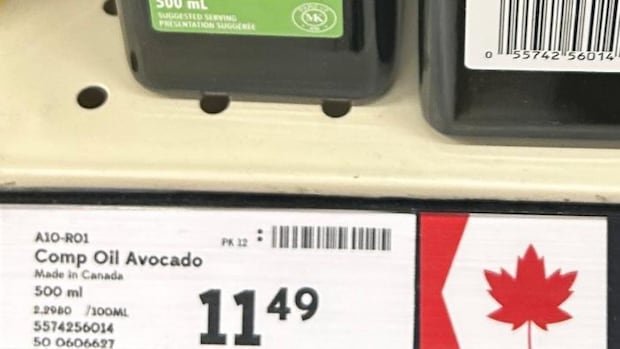The Canadian Food Inspection Agency (CFIA) has uncovered 12 instances where supermarkets have engaged in “maple washing,” a method in which companies utilize Canadian branding, such as the maple leaf, to promote imported food items. These infractions arose from complaints lodged with the CFIA from February to May, mostly involving national grocery chains. While the CFIA has the authority to levy fines of up to $15,000 per violation, no fines or penalties were imposed in these cases.
The CFIA confirmed that corrective actions were taken in each instance by the grocers involved, although specific names were not disclosed. However, it was confirmed that a prolonged case involved avocado oil purchased at a Sobeys-owned store near Edmonton. Consumers advocating for the Buy Canadian movement express concerns that without consequences, the practice of “maple washing” could persist.
Hamilton resident Brenda Nicholls emphasized the need for the CFIA to enforce fines to prompt changes in grocery store practices. Following a CBC News investigation in July, which revealed multiple cases of maple washing at a Toronto Sobeys and a Loblaw-owned No Frills, Nicholls has been vigilant in checking product labels for accuracy.
Nicholls discovered instances of misleading signage at her local stores, including blackberries labeled as a “Product of Canada” but actually originating from the U.S. and asparagus promoted as a Canadian product but distributed by a U.S. company and sourced from Peru. While she did not file a complaint with the CFIA, Nicholls addressed the discrepancies with store staff, leading to corrections being made.
Marketing professor Tim Dewhirst stressed the importance of holding grocers accountable for repeated errors to ensure compliance with regulations. Both Loblaw and Sobeys stated their commitment to accurate country-of-origin labeling despite the challenges posed by managing extensive inventories and changing suppliers.
The CFIA reported receiving 160 complaints regarding food origin claims this year, with 41% filed between July and August. Of the 40 cases identified as rule violations, several involved national grocery chains. In-store signage inaccurately promoting items as “Product of Canada” or using the maple leaf symbol to endorse imported products were among the infractions detected.
Young’s case involving Sobeys’ Compliments avocado oil highlighted the issue of misleading labeling, prompting CBC News to investigate similar instances involving imported products falsely labeled as “Made in Canada.” After the CFIA’s intervention, the signage discrepancies were rectified.
Young expressed satisfaction with the resolution of her case but emphasized the need for timely action and potential penalties for grocers to prevent prolonged delays in addressing such issues. The CFIA reiterated its commitment to addressing food mislabeling and enforcing appropriate enforcement measures based on various factors.
To combat mislabeling, Dewhirst advised consumers to carefully scrutinize product labels and not solely rely on branding like the maple leaf symbol. Nicholls, following her experiences, now prefers shopping at independent stores specializing in local products to support transparency in labeling practices.


